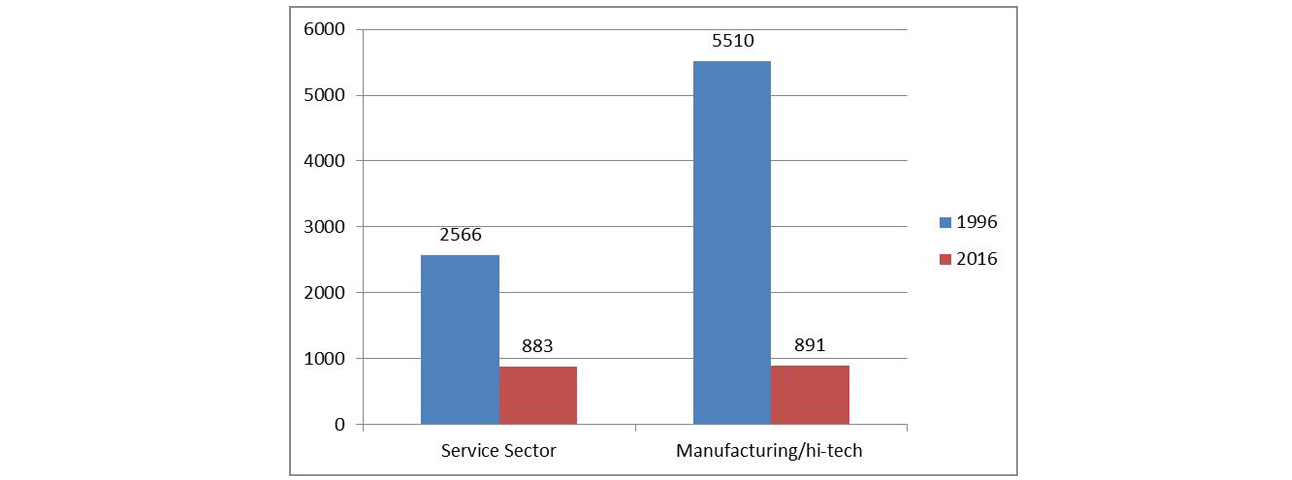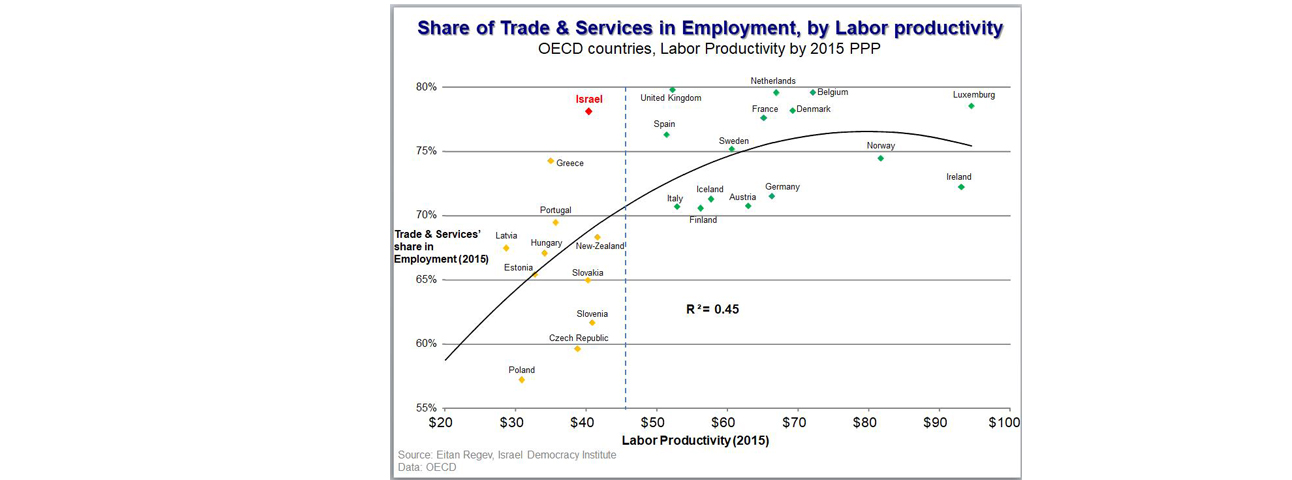Israel needs a Paradigm Shift: Greater Compatibility Between Human Capital and the Economy

At the Eli Hurvitz Conference on Economy and Society, IDI researcher Dr. Eitan Regev presented his study findings, focusing on the major systemic barriers to creating greater compatibility between the composition of Israel’s human capital and the needs of its economy. Increasing the number of workers in the industrial and hi-tech sectors, which is a pressing need, requires a paradigm shift and comprehensive, system-wide planning of vocational training. The economy's needs must be systematically mapped, and public resources allocated accordingly.
Underlying factors that hinder increase in skilled manpower
1) The unsuitability of the training system to the individual needs of its target populations
2) Structural problems in the system itself
3) Low rates and short duration of employment in the occupations for which training was provided
4) Inadequate coordination among the various relevant bodies; a clear need for a system-wide and comprehensive survey of the current needs of the economy (in terms of skilled manpower) and greater inter-ministerial cooperation to serve as the basis for a holistic approach to the development of vocational training frameworks.
Two main obstacles to making vocational training appealing
1. Incompatibility between the scope of investment in vocational training and the manpower needs of the economy. For example the state invests NIS 40,000 per student at university / public college, whereas it only invests NIS 8,000 per student in the technological colleges, even though manufacturing industries suffer from a severe shortage of skilled workers.
2. Retraining – the budget for vocational training as a share of the GDP has sharply dropped, thus less professionals are able to rely on public funding to acquire the necessary training in professions where the economy is lacking skilled workers.
Herein lies the paradox - the economy suffers from a shortage of skilled manpower in industry and hi-tech, but public funding is greater for the education of professionals in the service industries. The state does not invest enough in training people for jobs that have a greater added valued to the economy.
For the short term, policy makers must utilize whatever means they have at their disposal to divert surplus human capital from the social sciences to the exact sciences and to vocational training.
For the long-term, a more comprehensive perspective must be adopted. A public body must be established to oversee all aspects of training human capital--- in academia, in technological colleges, and in vocational training programs---based on a comprehensive perspective on the needs of the economy and aimed at creating a better fit between the educational contents provided in each of these frameworks, the needs of the target populations, and the overall needs of the economy.
Total annual working hours in Israel per industry (in millions) 1996, 2016


